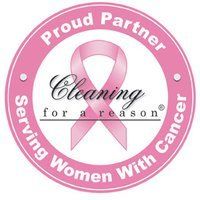Floor & Tile Cleaning
Nothing reflects your home’s beauty like your floors. They are the among largest surfaces in your house and should also be taken care of on a regular basis. The wear and tear that a floor can encounter makes it even more important to clean them properly. Using harsh chemicals or cleaners that ruin wood finishes can reduce the value of your floor, leaving it dull and unattractive.
Sometimes floor cleaners and other floor cleaning products can bother children or pets. Making sure that you have safe floor cleaning products is also a very important thing. In order to make sure you are cleaning you floors the correct way, check out these floor cleaning tips from www.info.com .
Floor & Tile Cleaning
Find out proper floor cleaning methods for hardwood and tile.
©Jupiter Images, 2009
Hardwood and tile floors require proper cleaning to retain their beauty.
Proper floor and tile cleaning is important to preserving an investment in a beautiful hardwood, ceramic tile or natural stone floor. Hard surfaces are a popular choice for homeowners, especially those with pets and allergies, because they are durable and easy to clean. Hardwood floors tend to be more popular along the East Coast and in the Midwest, while tile and natural stone products are used extensively in homes in warmer climates, such as in Texas, Arizona and California. Hard-surface floor products are typically installed in entryways, kitchens, bathrooms and throughout a home. Since these materials are often installed in high-traffic areas, they require routine cleaning. Having the right cleaning supplies and tools will make the job easier and prevent damage to the floor's surface
Cleaning Hardwood Floors
Hardwood floors should be swept weekly to remove dirt. Time-saving devices, such as electric sweepers or vacuum cleaners, will make the task easier, and the attachments are useful for sucking up debris that collects along baseboards. Beater bar vacuum attachments meant for carpeted surfaces should not be used on hardwood because they can scratch floor surfaces.
Wood can expand, crack and even buckle from moisture, so excessive water should not be used for cleaning, and spills should be quickly mopped up. The method of cleaning a hardwood floor may be different for prefinished products than for products that were finished after installation. Homeowners with prefinished floors should use products recommended by the product's manufacturer. Floors that were sanded and had the finish applied after installation can be cleaned with a damp mop that has a terrycloth cover and rotating head. Spray-on hardwood floor-cleaning products can be used on spills, heel marks and for spot-cleaning. Cleaners with ammonia or oil can dull the surface of a wood floor and affect the ability to recoat it with urethane. Hardwood floors with a urethane finish should not be waxed
Cleaning Tile Floors
A ceramic tile floor should be mopped as needed after sweeping. Homeowners can use tile floor products sold in stores or the manufacturer's recommended cleaner. Textured tiles might require periodic scrubbing with a soft brush or an electric polisher to lift dirt out of indentations. According to the World Floor Covering Association, scrubbing a tile floor with scouring powders and steel wool can permanently scratch the surface. Also, oil-based cleaners are not suitable for tile floors. Thoroughly removing any soap residue by rinsing with clean water prevents the tile from looking lackluster or streaked. Tile can take a while to dry and is very slippery, so make sure children do not try to cross a wet tile floor.
Grout can begin to look dirty over time, especially if it was not properly sealed. Bleach and ammonia products should not be used because they can discolor grout over time. Cleaners specifically made for grout can be used with a soft-bristled brush to remove tough dirt and stains. If the entire floor needs to be cleaned before sealing the grout, it might be worthwhile to hire a professional floor cleaning service to avoid sealing in dirt
Cleaning Natural Stone Floors
Cleaning natural stone floors, such as slate and travertine, is similar to cleaning ceramic tile in many ways. However, stone is porous and does require some special care. Like ceramic tile, the stone should be swept and damp-mopped, but with products designed for stone, not regular floor cleaner. Using the wrong cleaning product can remove or reduce the effectiveness of the sealant. Rinsing thoroughly with water will prevent streaking or a cloudy film over the surface. Abrasive or ammonia-based cleaners can dull the luster of stone. Additionally, acidic products like vinegar or lemon juice should not be used on travertine, marble or limestone.
Now that you know more about cleaning your floors, we hope that you will be able to keep your floors' natural look. Cleaning your floors properly will make it so your floors almost always look like new. Before you clean you floors, make sure to give this article another read through, as it is important to clean your floors the right way.



